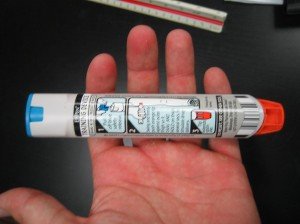Out of our six providers in the US, one of them can be found in the city of Portland in Oregon. It offers the same classes as our other providers, with eight training programs you can choose from. If you need certification or simply want to train in CPR, Portland CPR is for you. We award all our students with training certificates once they complete the program as long as they accomplish all the requirements.
Our website for Portland CPR has a complete list of classes, rates, and schedules, even an online application form you can fill out if you choose to enroll in a class. We also allow prospective trainees to send in their application forms through e-mail, telephone, and of course, in person. The last two options can only be done during normal business hours.
CPR training: Basic or Advanced Courses?
Once you’ve decided that you want to enroll in training, the next step is choosing a course. There are always two options: basic or advanced CPR training. Healthcare providers can choose from our list of seven HCP courses while laypersons or people who don’t work in healthcare can only enroll in one program, Heartsaver CPR, a basic CPR course for the public.

Basic courses are focused on introducing the students to the concept of cardiac arrest management through CPR. Basic CPR is all about three skills: compression, ventilation, and defibrillation. If you are a bystander rescuer, you will most likely perform the first two steps before medical help (EMTs) arrive. Compressions will manually pump the heart and send blood to the rest of the body, while ventilation oxygenated the blood through mouth-to-mouth breaths.
- Basic CPR (Heartsaver) – 4 hrs.; for the public
- Basic CPR C (Heartsaver C) – 4.5 hrs., for HCPs
- Basic Life Support for HCPs – 4.5 hrs., for HCPs
Advanced courses can only be taken by healthcare professionals, particularly those who are allowed to administer medication, give diagnostics, and set up cardiorespiratory supportive equipment. We require trainees to train first in Basic Life Support for HCPs (or have an equivalent training credential) before they can start ALS courses. There is also a pre-test consisting of a written and skills exam.
When cardiac arrest is managed in a hospital or in an emergency situation, medication, diagnostics, and equipment are typical tools of the trade. We train our students to be competent in providing different kinds of management techniques, as well as the knowledge behind each action.
- Advanced Cardiac Life Support (ACLS) – 16 hrs. in 2 days
- Pediatric Advanced Life Support – 14 hrs. in 2 days
Certified for CPR training
A lot of our students always ask about certification. Once you finish training with complete attendance and pass the certification exam, we will award you with a CPR training credential. The certificate is only valid for two years so remember to renew before it expires. You can only sign up for a re-certification class while the certificate is still valid, so if you let it expire you have to take the training program again.
